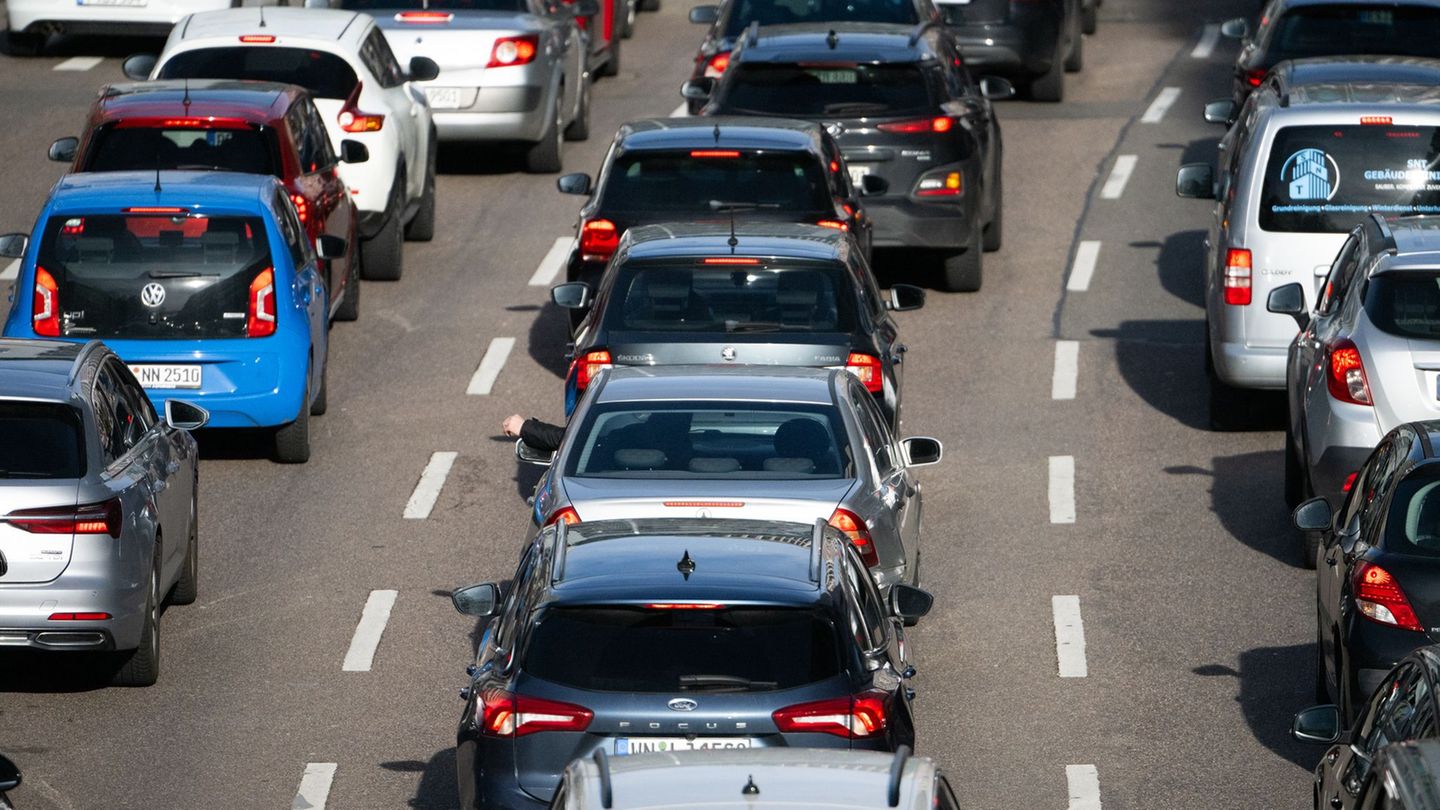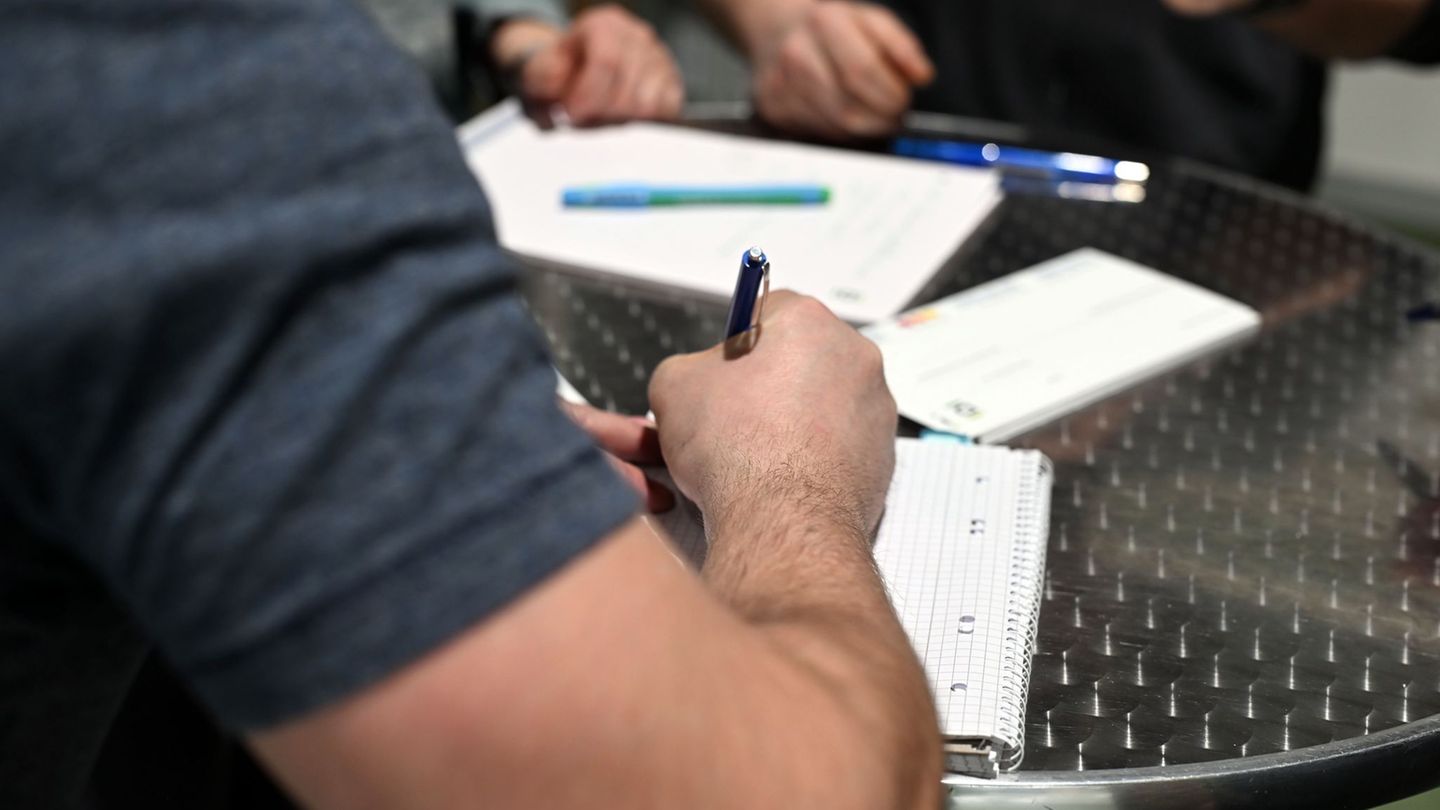Because of the war in Ukraine, Lithuania is restricting the transit of goods to Russia’s Kaliningrad exclave. Moscow sends warnings in the direction of the NATO country, where hundreds of Bundeswehr soldiers are stationed. How serious is the situation?
It may sound a bit ironic, but Moscow often sees itself as a victim these days.
Western supplies of arms to Ukraine, pressure to impose sanctions, expulsion of diplomats: all of this is unjustified, according to Russia, despite the war that began four months ago against the neighboring country. The decision by the EU and NATO country Lithuania to restrict transit between the Baltic Sea exclave of Kaliningrad, which belongs to Russia, and the Russian heartland has been causing particular outrage for days.
This eliminates the need to transport goods that are on Western sanctions lists, at least via the Baltic overland route. According to Kaliningrad, this affects 40 to 50 percent of all goods in transit, including building materials and metals.
Russia’s westernmost territory around the former Koenigsberg, which was ceded to the Soviet Union after the end of World War II, lies between Lithuania and Poland. The region with almost a million inhabitants is only about 500 kilometers from Berlin, but more than 1000 kilometers from Moscow. Is there a risk of escalation of the conflict with NATO here?
Hardliners call for the creation of a “corridor”
Kremlin spokesman Dmitry Peskov recently spoke of “elements of a blockade” and “illegal” action. Security Council chief Nikolai Patrushev then visited Kaliningrad on Tuesday – and railed: Moscow would respond to such “hostile actions” with countermeasures. “The consequences of which will have a severe negative impact on the population of Lithuania.”
But how far will Russia go with its countermeasures? Kaliningrad governor Anton Alikhanov hinted at a possible transit blockade for Lithuanian goods. Hardliners loyal to the Kremlin, on the other hand, repeatedly called for the creation of a “corridor” between core Russia and Kaliningrad on talk shows on state television. That would mean an attack on the intermediate countries of Latvia and Lithuania – or from Russia’s ally Belarus on the border area between Lithuania and Poland.
There, the Baltic is only connected to the rest of NATO territory by a strip of around 65 kilometers – the so-called Suwalki Gap. Because of this situation, the three Baltic states are seen as the Achilles’ heel of NATO’s eastern flank: In an emergency, they would be relatively easy to separate – to isolate militarily.
NATO: Low risk of major escalation
But in Brussels, the risk of a major escalation of the conflict is considered low. According to high-ranking NATO military officials, Russia is currently unable to seriously threaten NATO territory because of its war against Ukraine. According to the Alliance headquarters, Russia’s army is tied up in Ukraine and has probably already used up around 50 percent of its long-range weapons. A fundamental reconstruction of the armed forces will be needed before they can again pose a serious threat to NATO territory.
Even before the war began, NATO had also increased its task force in Lithuania to around 1,600 to deter Russia. With a good 1,000 soldiers, the largest contingent comes from the Bundeswehr, which has led a multinational NATO unit at the Rukla military base since 2017 – about 100 kilometers as the crow flies from Kaliningrad.
EU assures verification
Nevertheless, the European Union has now assured Russia that it will re-examine the guidelines for the application of the sanctions for compatibility with international law. The aim is to confirm that any kind of law is observed, announced the EU foreign policy chief Josep Borrell on Monday.
The Spaniard also emphasized that Lithuania had not taken any unilateral measures, but was acting on the basis of the EU Commission’s guidelines for implementing sanctions. Allegations against the country are “false” and “pure propaganda”.
Lithuania’s Foreign Minister Gabrielius Landsbergis sees Russian complaints about transit restrictions as part of Russian warfare. “Russia’s narrative is simply part of its war against the West: picking a target and trying to mobilize its society,” Landsbergis said. Prime Minister Ingrida Simonyte also pointed out that Russian citizens are still allowed to travel via Lithuania. “There is no blockade of Kaliningrad,” she stressed.
The Kaliningraders themselves, on the other hand, are obviously not reassured by such statements. The Russian business newspaper Kommersant, for example, reports on sudden cement hamster purchases. Governor Alikhanov appealed to the citizens of his region to please stop doing that: “I don’t know where you put all the cement that you are currently buying in huge quantities…”
Source: Stern
David William is a talented author who has made a name for himself in the world of writing. He is a professional author who writes on a wide range of topics, from general interest to opinion news. David is currently working as a writer at 24 hours worlds where he brings his unique perspective and in-depth research to his articles, making them both informative and engaging.




